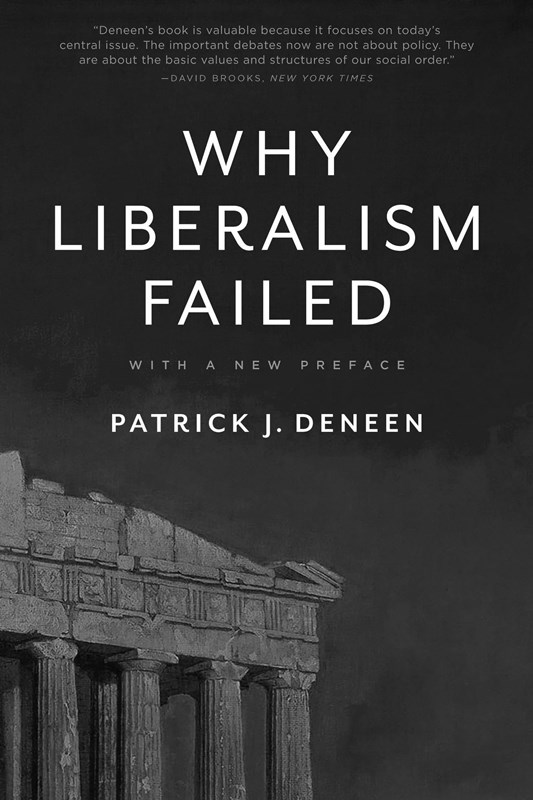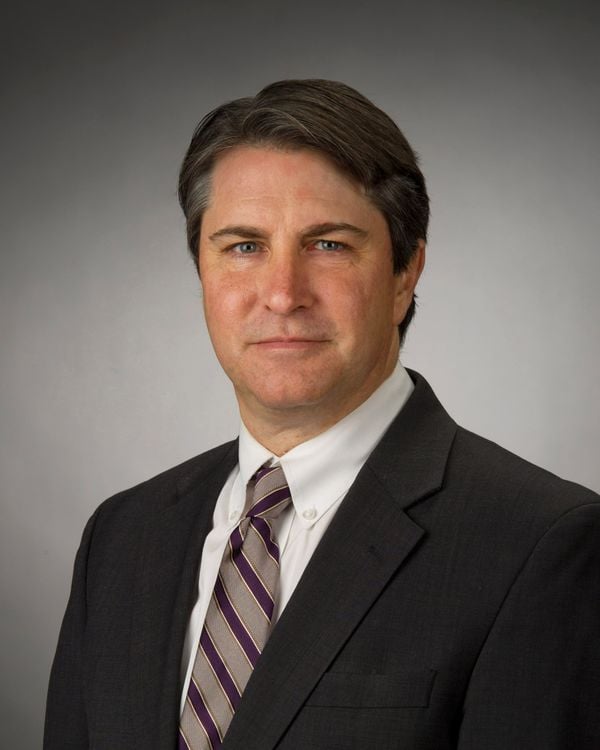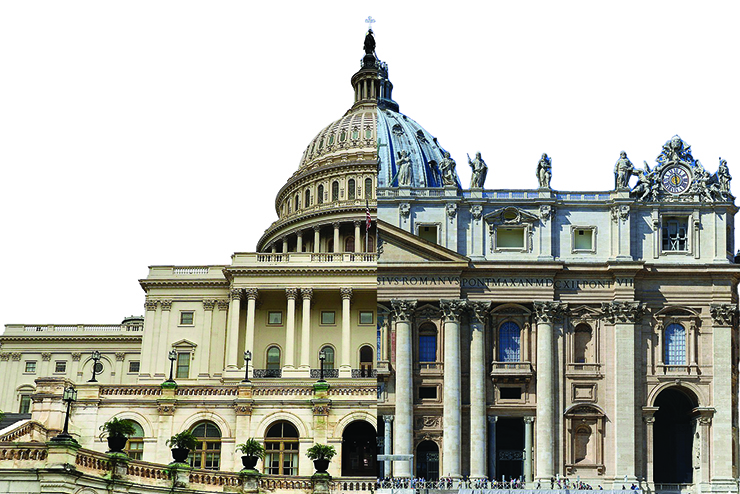Catholics have figured prominently among American conservatives, from Russell Kirk to William F. Buckley, Jr., to Antonin Scalia. Though they differed in many ways, Kirk, Buckley, and Scalia all emphasized the importance of tradition in ordering any decent society and the consistency of America’s constitutional order with Catholic doctrine and tradition. The neoconservative shattering of the conservative movement on the rocks of endless war, importation of peasant labor, political centralization, and cultural rot during the Bush II administration has left many traditional Catholics adrift. Among those vying to bring the castaways on board is a rather exotic-seeming, self-consciously Catholic movement called “integralism.”
Integralism would seem to have much to offer its intended followers. It begins with the recognition that politics must be concerned with the human good and that the highest good—man’s “final goal”—is salvation. Given this, liberalism’s hostility toward religion (and Catholicism in particular) must be overcome and replaced with a determination to subordinate political power to spiritual power.
Before dismissing all this as theocratic utopianism, one should remember that Christians throughout history have held that human laws and institutions should be guided by the truth about our nature and highest good, and that such truths are by nature spiritual. Within the western tradition, religious institutions have asserted their authority and sought to guide politicians and the people toward ends higher than their own material well-being. Humanity being flawed, the results have always been mixed. Still, only with the rise of centralized territorial “sovereigns” in the early modern era were religious institutions squeezed out of their prominent roles in tending to the poor, guarding the natural family, and teaching religious truth and virtue in the public square.
The culture wars of recent decades have pitted people still imbued with an awareness of natural law against progressives claiming to liberate individuals from the supposed oppressions of religion, tradition, and nature itself. The destruction of public order, the rule of law, and the fundamental, natural associations of family, church, and local community is proof of the power wielded by the forces of anti-nature. And so, one would be tempted to welcome integralism as an attempt to re-integrate persons into the communities that make them fully human.
Unfortunately, integralism—at least in its incarnation presented by thinkers like Harvard Law Professor Adrian Vermeule, Harvard-trained political scientist Gladden Pappin, and a knot of similarly formed academics, lawyers, and journalists—has fundamentally misunderstood the nature of politics, law, and the United States as a constitutional republic. The result is yet another variation on the theme of centralization and command by insulated elites convinced of their right to rule for the common good, as they define it.
Pope Gelasius I in the 5th century insisted on the rightful authority of the Church to guide temporal authorities in accordance with man’s eternal nature and highest goals. But there remained two powers, two “swords,” the temporal and the sacred. Kings were not to be ruled by priests. Why not? Because religion is not politics. Politics is, in fact, less important than religion and properly shaped by it.
But Catholic thinkers from Augustine to Thomas Aquinas to 20th century figures like Heinrich Rommen recognized that this shaping is indirect. Religion binds people to a way of life that shapes their character and the character of their society—the culture. The culture then shapes, or at least should shape, politics and law. When the religious seek to dictate the shape of politics directly, they can do so only with political power and ideology. Religion then becomes just another source of political propaganda and power. And this can only bring the modern disaster of totalitarianism, of rule by an unlimited, centralized state.

Patrick Deneen’s 2018 book Why Liberalism Failed
Integralism centers on a critique, not of the modern revolt against nature but merely of ideological liberalism, broadly defined. The difference is fatal because it leaves integralists railing against the entire tradition of decentralized powers and multiple authorities at the heart of constitutionalism. That tradition, rooted in Roman and especially medieval thought and practice, promoted government in which political powers are assigned, defined, and limited by laws that can’t be changed through administrative fiat or everyday political procedures. It is the form of government best suited to defending healthy cultures and decent, ordered societies that allow people to pursue the common good.
Integralists in effect reject constitutionalism and its understanding of the state as (in terms familiar within Catholic social teaching) a community of communities. In its place, integralists promote a distinctly modernist centralization of total, sovereign power that is hostile to the very associations they claim to value, including the Catholic Church herself.
Liberalism certainly merits criticism. Here Pappin especially references the work of Patrick Deneen, whose Why Liberalism Failed has gained notice for its thrashing of liberal thought and practice. From its inception in the minds of philosophers like John Locke and in the economic desires of commercial power brokers, liberalism, Deneen argues, has worked to fundamentally reconstruct both society and the person. The goal? To discipline and mobilize the people to work, in the name of liberty, for the economic well-being of commercial elites. In this formulation, liberty is defined as the absence of traditional social and political constraints. The result has been a hollowing out of our culture, as families and all the intermediary institutions in which we find meaning have been gradually destroyed. Their destruction made room for national values that demand the constant pursuit of material improvement and individual autonomy.
In the end, Deneen is a social democratic localist rather than an integralist. Integralists do not share his vision of the good life. But they do share his contempt for the United States Constitution. Deneen draws his portrait of that constitution by repeating charges against tradition that were once also levelled against the arguments of Madison and Hamilton in particular. I lack space here to fully address the multiple misreadings and distortions involved. It must suffice to point out that Deneen’s critique utterly ignores the consensus view of the Constitution at the time of its drafting and adoption. The convention overwhelmingly rejected Madison’s centralizing proposals (e.g. his “council of revision”). The overall result was, by design, a derivative and highly limited federal government.
The Constitution was designed to defend the more complete, organic societies of the states from outside powers, to maintain relatively free trade among those states, and, most fundamentally, to mediate among the states so that they and the natural, local associations at the heart of self-government—good character and Christian virtue—might flourish. It was a system of separated and distinctly limited powers enforced by checks and balances toward limited ends.
To emphasize the point, Madison himself helped guide to enactment the Constitution’s 10th Amendment, declaring that, “The powers not delegated to the United States by the Constitution, nor prohibited by it to the States, are reserved to the States respectively, or to the people.” The Amendment makes clear both the distinctly artificial and limited nature of the Constitution and the deeply federal nature of the American constitutional order. Today, that original Constitution may indeed be dead. Certainly, it has had vanishingly few defenders at elite universities for over a century.

above: Patrick Deneen (University of Notre Dame Department of Political Science)
Where Deneen rejects the Constitution as too centralizing, integralists reject it as too weak. Looking more to Paris than to London for guidance, Pappin dismisses the Philadelphia Constitution as irredeemably liberal. Conservatives, too, for him are mostly liberals. And traditional conservatives? They are failures who misunderstand their own tradition; theirs is “a would-be courtly ideology” intrinsically tied to the kind of “mirror of princes” literature by which early modern writers sought to flatter absolute monarchs into behaving with some modicum of decency. Pappin mentions no examples here. But perhaps that is his point: that only integralists can make conservatism the court ideology needed to support the sovereign state.
In American Affairs Journal, in an article titled “Toward a Party of the State,” Pappin defines liberalism as the separation of civil society from the state. He castigates most conservatives for perpetuating liberalism’s emphasis on liberty, which he says undermines the state’s ability to mobilize the nation to pursue the common good. Yet the “state” he champions was a murderous imposition on the pre-existing constitutional equilibrium of the Middle Ages. That equilibrium included a variety of legal jurisdictions, classes, estates, and governing bodies mediating among more fundamental, local associations so that they could flourish and cooperate on wider issues for the common good. The state he extols is most clearly seen in early modern France. It did not fully exist until the bloody internal conquests of early modern kings who sought to destroy the natural, human-scale communities they saw as competitors for allegiance, funding, and power.
Rejecting Locke, integralists point us not to Edmund Burke or to Thomas Aquinas or to Augustine (who held that “an unjust law seems like no law at all”) but to those proponents of absolute sovereignty, Jean Bodin and, more explicitly, his English follower, Thomas Hobbes. Pappin urges formation, throughout the West, of national unity governments able to construct politically useful policies and so to gain the power to enforce a “unitary model of the state’s purpose.” Political differences are to be subordinated to a consolidation of state power in the hands of administrative rulers who will articulate “political positions simply in terms of the common good.”
“Common good” is the key phrase, here. It is at the root of integralism’s claim to Catholic authenticity and purpose. But how is the common good to be pursued? An important first step, for integralists, is rejecting the American constitutional tradition. In The Atlantic, in an article titled “Beyond Originalism,” Vermeule extols a judicial method he terms “common-good constitutionalism.” This tactic would replace originalism—a method of judicial interpretation stressing judges’ duty to read legal texts to mean what their authors understood them to mean. Originalism, according to Vermeule, was useful for a time (which he laughably asserts is past) when legal conservatism was under assault. But originalism is no longer politically useful and is therefore irrelevant, whether it be true or not.
The upshot is that, according to Vermeule, proper judicial interpretation is political, a matter of choosing what method works best to achieve one’s ends. His method is to read “good” principles into the “majestic generalities and ambiguities of the written Constitution.” That is, “conservatives” should mimic the left by manipulating supposed gaps in text and meaning to suit the “right” ends.
Those ends are relentlessly bureaucratic and authoritarian. They begin with “respect for the authority of rule and of rulers.” Note, not respect for law, for tradition, or for God, but for the powerful, their positions, and their dictates. In Law & Leviathan, a book co-written with the anti-religious activist, former Obama regulatory Czar and (of course) Harvard Law Professor Cass Sunstein, the subtitle announces Vermeule’s intention to “redeem the administrative state.” Note that the goal is not to reform the administrative state. Rather, it is to make the rest of us accept it and its rulers because the “normal science” of elite opinion has entrenched them and because, if guided by the right experts and their correct opinions, it will serve the common good.
Vermeule does at times allude to the importance of the Catholic values of subsidiarity and solidarity, which any localist would welcome. But these ends are to be furthered—we can only hope—by a sovereign whose power is without check. Vermeule’s main governmental aim is “to ensure that the ruler has the power needed to rule well.” While acting against the common good may be tyrannous, even causing one to forfeit the right to rule, the traditional means of keeping rulers within their proper bounds and preventing abuses—from the multiple legal jurisdictions of medieval Europe to the “auxiliary precautions” of the United States Constitution—are to be gutted (as indeed they have been).
It is not just our Constitution Vermeule rejects, but our constitutional tradition as a whole. He does not see government as a structure mediating among more fundamental, natural, local associations. Rather, “government helps direct persons, associations, and society generally toward the common good.” Rulers command, shape, and order the ruled. And such “strong rule in the interest of attending the common good is entirely legitimate.” Bureaucracy itself is to be seen as “the strong hand of legitimate rule.” The state needs “ample power to cope” with issues, especially of public health, understood both literally and metaphorically. Vermeule claims, for example, that the federal government should have the power to reconstruct people’s behavior to combat “global warming” and should force people to undergo experimental vaccinations in the name of fighting COVID-19. More generally, integralists castigate assertions of individual rights in opposition to currently accepted bureaucratic wisdom.
One might be forgiven for seeing integralism as not merely strong government, but absolute government. It allows for no spaces where administrators cannot decide to regulate behavior that they judge may either further or undermine the common good. One need be no kind of liberal to reject the docile submissiveness thus demanded of people in the face of those who, whatever their academic pedigrees, remain fallible human beings liable to corruption, self-interest, simple mistakes and, dare one say, arrogance.
Integralist-related materials (including at TheJosias.com) are full of commentary on the nature of the good and how to pursue it, and much of this content is appealing. Yet, even in societies where the spiritual final end is recognized, there are problems of power and sin. The western constitutional tradition was born of this understanding and puts it into action through the use of counterweights and low-level conflict to prevent concentration of unquestioned power. The Catholic Church was, in fact, an important force in developing this understanding and putting it into action.
Unfortunately, integralism in its modern mode turns its back on this long tradition, focusing instead on the drive to reform society through targeted actions rooted in the power of the state. That state, secularist from its beginnings, has done much harm to the human spirit. To assert that if only we can have the right people running its machinery (or educating those who do) then the state will suddenly start doing good is to reject the lessons of history, of common sense, and of the Church herself.
Rather than rehearse the long list of abuses arising from state actors, many of them convinced of their own moral rectitude, it might be best to end with a brief reference to what administrative centralization and the ideology of sovereignty have done within the Church herself. The First Vatican Council, convened from 1869-70, was an attempt by the Church hierarchy to respond to the rise of sovereign states by instituting state-like centralization in the Church.
Observers like Saint Cardinal John Newman feared such motives but took solace in the fact that the “Universal Church” could never act as a concrete, localized state. Unfortunately, administrative and canon law changes over the succeeding century and a half have proved more successful than he predicted. Bishops have become unquestioned rulers of the laity in their jurisdictions, and the hierarchy in the Vatican has become utterly divorced from, and immune to, attempts from clerics and laymen alike to stem corruption, abuse, and ideological fads—all of them trending left.
Consider that in the Catholic Church today we have priests giving the Eucharist to radically pro-abortion politicians; parish schools being shut down (over loud lay opposition) in order to pay settlements to victims of pederast priests; a Pope who bemoans global warming but will not mention the massacre of Christians in China or the Middle East; and a hierarchy that continues to cover for active homosexuals while simultaneously working to stamp out the Latin Mass.
One would think such events might give traditionalist Catholics pause in their support for the integralist pursuit of centralization. Constitutionalism, both within and outside the Church, grew out of opposition to abuses like these. Its demise, whether at the hands of liberals or anti-liberals, will benefit only tyrants and their hangers-on.
composite image, above left: U.S. Capitol and Congress in Washington, D.C.; above right: St. Peter’s Basilica in the Vatican. Chronicles (images from Wikimedia Commons)

Leave a Reply